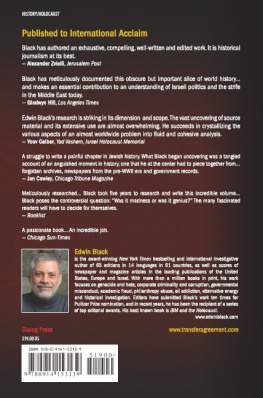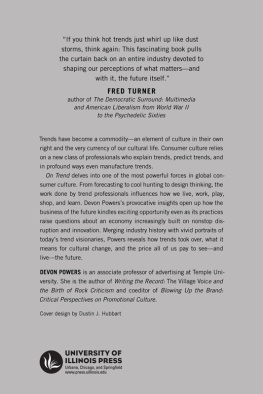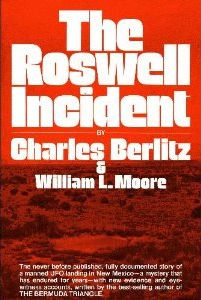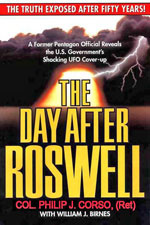Black - Devon Island, Canadas Roswell
Here you can read online Black - Devon Island, Canadas Roswell full text of the book (entire story) in english for free. Download pdf and epub, get meaning, cover and reviews about this ebook. year: 2019, genre: Detective and thriller. Description of the work, (preface) as well as reviews are available. Best literature library LitArk.com created for fans of good reading and offers a wide selection of genres:
Romance novel
Science fiction
Adventure
Detective
Science
History
Home and family
Prose
Art
Politics
Computer
Non-fiction
Religion
Business
Children
Humor
Choose a favorite category and find really read worthwhile books. Enjoy immersion in the world of imagination, feel the emotions of the characters or learn something new for yourself, make an fascinating discovery.

- Book:Devon Island, Canadas Roswell
- Author:
- Genre:
- Year:2019
- Rating:3 / 5
- Favourites:Add to favourites
- Your mark:
- 60
- 1
- 2
- 3
- 4
- 5
Devon Island, Canadas Roswell: summary, description and annotation
We offer to read an annotation, description, summary or preface (depends on what the author of the book "Devon Island, Canadas Roswell" wrote himself). If you haven't found the necessary information about the book — write in the comments, we will try to find it.
Black: author's other books
Who wrote Devon Island, Canadas Roswell? Find out the surname, the name of the author of the book and a list of all author's works by series.
Devon Island, Canadas Roswell — read online for free the complete book (whole text) full work
Below is the text of the book, divided by pages. System saving the place of the last page read, allows you to conveniently read the book "Devon Island, Canadas Roswell" online for free, without having to search again every time where you left off. Put a bookmark, and you can go to the page where you finished reading at any time.
Font size:
Interval:
Bookmark:
DEVON ISLAND
CANADAS ROSWELL
By
S. Jonas Black
Dedicated to Dr. Joseph Red
Edited by P.J.K. (with much appreciation)
Index
Preface
Part One
Chapter 1 Life on the DEW line
Chapter 2 What is that?
Chapter Discovering the wreck
Chapter 4 PPCLI called in
Chapter 5 First Contact
Chapter 6 I would like to buy a tent
Chapter 7 More equipment please
Chapter 8 Take the craft
Chapter 9 CFB Suffield, Canadas Area 51
Chapter 10 The dismantling
Chapter 11 Welcome to your new home
Part Two
Chapter 12 Project Overshot
Chapter 13 Secrecy kept
Chapter 14 Welcome Aboard
Chapter 15 Promotion for the Major
Chapter 16 Decisions, decisions
Chapter 17 Road Trip
Chapter 18 Goodbye Lt. Col.
Part Three
(Transcripts of Interviews)
Chapter 19 Cpl. Ron Kaye
Chapter 20 Lt. Col Logan
Chapter 21 Maj. Stefanic
Chapter 22 Brig. Gen. A. Mouldy
Chapter 23 Cpt. F (Black Cloud) Engle
Chapter 24 Sgt. B W (Moose) McIntyre
DEVON ISLAND CANADAS ROSWELL
Preface
For those of you who are not familiar with me or my work, I write under the pseudonym of S. Jonas Black. Some people even feel he (S. Jonas Black) may be my alter ego. He might just be. In addition to writing books under my alter ego, I also have a YouTube channel and blog whereby I use my real name.
My blog and my show centers around government conspiracies and secrets kept from its citizens (both the citizens of Canada and the United States too). My guests are free to reveal anything they would like while I interview them for the blog and YouTube show. They know that there is no anonymity when they appear on my show, so they say only what they choose to say on that show. But when I put information in a book, I dont want anyone to be able to track down my source for information for the data I publish. Therefore I do not release certain information on the blog or YouTube channel. That way the government doesnt attempt to locate my sources. Instead I write under my pseudonym to protect the informants who provide me with the information that I write about in my books. I will never breach their trust as I want, no need, to keep the information coming in for my books and shows.
It was in my first book, The Trifecta Papers, where I talked about the many steps I take to protect my informants. I also used my pseudonym for their protection as well as my own. Nothing has changed in this book as far as the steps I take to protect those who risked so much to give me the information I need. I hope the reader understands the importance of protecting these courageous people who risk so much to tell us their stories. Without them, I would not have been able to document their stories here for you to read.
I have conducted several interviews with several people to assist me in writing this book. I am attempting to write this as if I am the one observing it in person and in real time, as I feel this will most accurately reflect not only the incidents but the emotions regarding these specific events. What you are reading is real. The people are real. The only thing that is not real is their names. Some of the original witnesses have passed on, and some of the others are reluctant to talk. There are a few I could not locate. But the ones that I could locate and did talk to me gave me great information. I will be protecting their identities by not providing their real names.
The spacecraft described in this book is exactly as it was described to me by the witnesses. Although there were subtle differences amongst the various witnesses, for the most part they were all in agreement. I feel that the subtle differences lend itself to the overall credibility as it verifies that there was no collusion of the people involved. Sadly, some of the witnesses have passed on as it was over half a century ago.
During the interviews I learned what had happened to the aliens, as well as a good number of the soldiers who worked on this project. When the last of the aliens had died and the project ended, I know that the craft along with all the tools, documents, photos, alien cadavers, etc. where all moved to a secure storage facility that I have no idea where it is located. If anyone who reads this book knows please let me know as I would love to learn the whereabouts.
I can tell you that Lieutenant Colonel Logan (not his real name) is now an older man enjoying his retirement. He has a beautiful home overlooking the ocean. His mind is still sharp, and I have developed a good friendship with him. He is a good man, and a caring man. In some ways, he is the best man I have ever had the pleasure of meeting.
Although my time in the military did overlap with some of the timeline covered in this book, I personally had no knowledge of any of it when I was in the military. I sure wish I had. The experiences those involved in it were so amazing.
So, I hope the following information is interesting to you, and like my first book, if you have any knowledge on this project that you feel would be of interest or informative to the reader, please send it to me for further revisions of this book.
PART ONE
Chapter One
Life on the DEW Line
The DEW (Distant Early Warning) line ran from Greenland through Canada to Alaska in the arctic. It was started in 1957 although the planning and building began a few years earlier. Most of the DEW line was located in Canada in the far north with some of it located in both Greenland and Alaska. It consisted of several radar installations monitoring long range bombers from the USSR (Union of Soviet Socialist Republic). They also monitored the launching of ICBMs or Intercontinental Ballistic Missiles. These sites are staffed by both Canadian and American Air Force soldiers with NORAD (North America Aerospace Defence) assuming overall command. This system remained in place for several years until replaced in 1993 by a more automated system.
Along the DEW-line on September 27 th 1966, Ron Kaye was sitting at his monitoring post in the warm building that made up part of PIN-4. Jim Reeves was performing Distant Drums as it was coming over Radio Canada International on the shortwave radio next to his desk. Later at 1800 Zulu time, he would listen to the world news on BBC shortwave. The day before there was a light snow outside that Ron often jokingly called a powder puff (He used this term regardless of how heavy the snow really was). Today it was clear outside, and the sun is shining for about eight hours a day.
Ron had been in the air force for a few years. His actual occupation was as an instrumentation technician. This Dew-Line location was staffed by a team of six to eight people. Ron was on his second deployment in the far north. Here on the DEW-line they typically had one instrumentation technician, along with a radar technician, diesel mechanic and of course the radar operators (which they were all cross trained as well in other things). In addition to this, they all took turns being the stations cook as well as covering off all the other station duties and chores, of which there were many.
PIN-4 was their section of the DEW line and it is a remote outpost located on Victoria Island. The DEW- line had been in place a few years and ran roughly along the 69 th Parallel. At this time of the year, the window of daylight was rapidly getting closed. Soon the sun would set for the winter. It was a welcomed time as there were fewer Soviet spy planes entering in the dark. The number of bomber runs remained unchanged in the dark though. Long range Soviet bombers would often cross into Canadian territory but would hustle back before they were intercepted by the CF-101 fighter interceptors that the Canadian Air Force used then. Spy planes didnt fly as much in the dark as there was less to take pictures of. Unless they fly further south, but that was very risky for Soviet Spy planes to do so. Each kilometer further south increased the chance that an interceptor plane would catch up to them. They didnt want to be shot down and the memory of Francis Gary Powers being shot down in May of 1960 in his U2 spy plane was still fresh in everyones mind. This was especially true by the pilots of spy planes on both sides of the cold war.
Next pageFont size:
Interval:
Bookmark:
Similar books «Devon Island, Canadas Roswell»
Look at similar books to Devon Island, Canadas Roswell. We have selected literature similar in name and meaning in the hope of providing readers with more options to find new, interesting, not yet read works.
Discussion, reviews of the book Devon Island, Canadas Roswell and just readers' own opinions. Leave your comments, write what you think about the work, its meaning or the main characters. Specify what exactly you liked and what you didn't like, and why you think so.
















